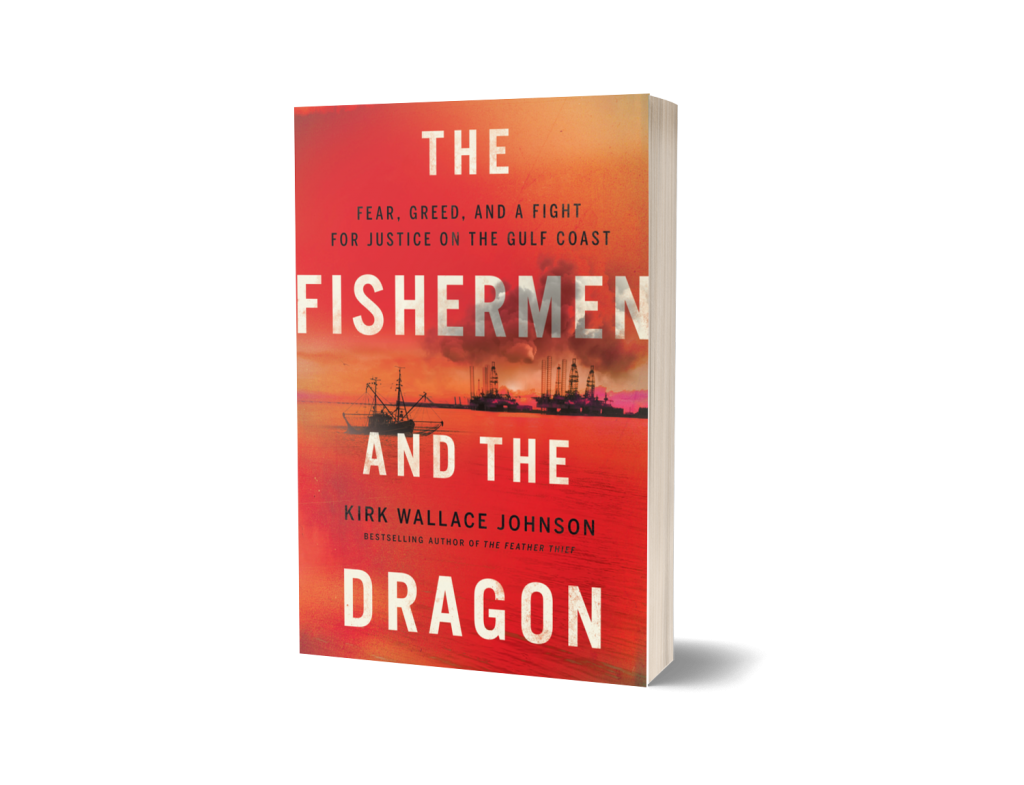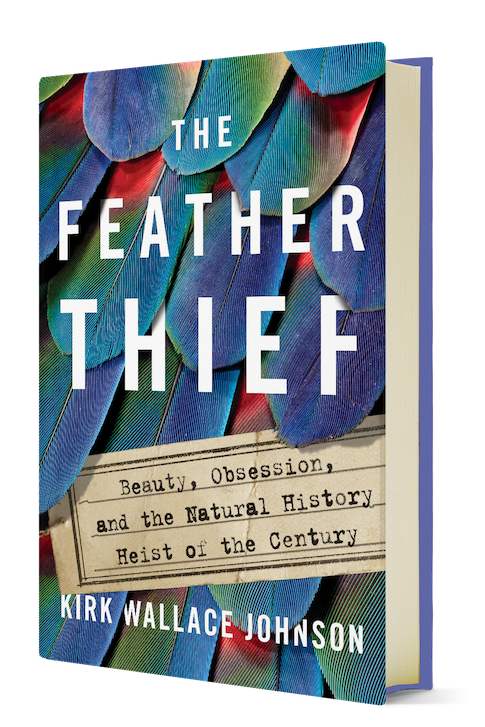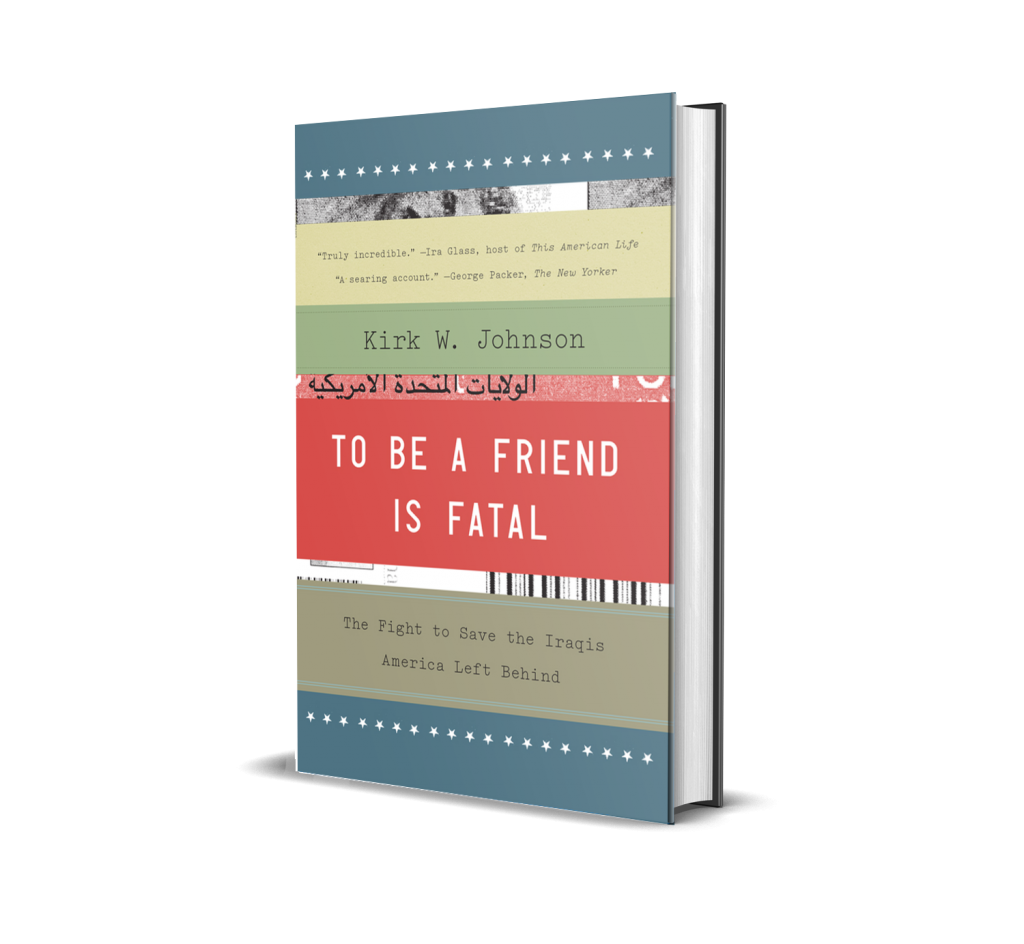THE FISHERMEN AND THE DRAGON
In the late 1970s, the fishermen of the Texas Gulf Coast were struggling. The bays that had sustained generations of shrimpers and crabbers were being poisoned by nearby petrochemical plants, oil spills, pesticides, and concrete. The White fishermen, though, could only see one culprit: the small but growing number of newly resettled Vietnamese refugees who had recently started fishing.
Tensions climbed as White fishermen called for refugee bans and threatened violence in the name of protecting what they claimed was their turf. After a young Vietnamese man killed a White crabber in self-defense, a posse responded by torching Vietnamese boats and a home, leading the Grand Dragon of the Texas Knights of the Ku Klux Klan to sense an opportunity. Over the next two years, amid a garish campaign of violence, death threats, and arson, with terrifying Klan rallies and boat patrols, many Vietnamese were ready to flee – until a charismatic South Vietnamese colonel convinced them to stand their ground and put their trust in the Constitution. Throughout the dizzying clash, which culminated in a tense courtroom showdown, one woman could see clearly enough to recognize the true threat to the bays—and her determination to take on the real villains became the fishermen’s last hope.
Kirk Wallace Johnson’s gripping book depicts a community set on fire by hatred, xenophobia, and ecological disaster. Drawing upon a trove of never-before-published material, case files, and interviews with Klansmen, shrimpers, law enforcement, environmental activists, lawyers, perpetrators, and victims, Johnson uncovers secrets and secures confessions to crimes that went unsolved for more than forty years. It’s a story that braids corporate malfeasance with a battle over shrinking natural resources, at a turning point in the modern white supremacist movement, and highlights one woman’s relentless battle for environmental justice.
THE FEATHER THIEF
On a cool June evening in 2009, after performing a concert at London’s Royal Academy of Music, twenty-year-old American flautist Edwin Rist boarded a train for a suburban outpost of the British Museum of Natural History. Home to one of the largest ornithological collections in the world, the Tring museum was full of rare bird specimens whose gorgeous feathers were worth staggering amounts of money to the men who shared Edwin’s obsession: the Victorian art of salmon fly-tying. Once inside the museum, the champion fly-tier grabbed hundreds of bird skins—some collected 150 years earlier by a contemporary of Darwin’s, Alfred Russel Wallace, who’d risked everything to gather them—and escaped into the darkness.
Two years later, Kirk Wallace Johnson was waist high in a river in northern New Mexico when his fly-fishing guide told him about the heist. He was soon consumed by the strange case of the feather thief. What would possess a person to steal dead birds? Had Edwin paid the price for his crime? What became of the missing skins? In his search for answers, Johnson was catapulted into a years-long, worldwide investigation. The gripping story of a bizarre and shocking crime, and one man’s relentless pursuit of justice, The Feather Thief is also a fascinating exploration of obsession, and man’s destructive instinct to harvest the beauty of nature.
TO BE A FRIEND IS FATAL
In January 2005 Kirk Johnson, then twenty-four, arrived in Baghdad as USAID’s (US Agency for International Development) only Arabic-speaking American employee. Despite his opposition to the war, Johnson felt called to civic duty and wanted to help rebuild Iraq. Working as the USAID’s first reconstruction coordinator in Fallujah, he traversed the city’s IED-strewn streets, working alongside idealistic Iraqi translators—young men and women sick of Saddam, filled with Hollywood slang, and enchanted by the idea of a peaceful, democratic Iraq. It was not to be. As sectarian violence escalated, Iraqis employed by the US coalition found themselves subject to a campaign of kidnapping, torture, and assassination.
On his first brief vacation, Johnson, swept into what doctors later described as a “fugue state,” crawled onto the ledge outside his hotel window and plunged off. He would spend the next year in an abyss of depression, surgery, and PTSD—crushed by having failed in Iraq. One day, Johnson received an email from an Iraqi friend, Yaghdan: People are trying to kill me and I need your help. That email launched Johnson’s decade-long mission to get help from the US government for Yaghdan and thousands of abandoned Iraqis like him.



